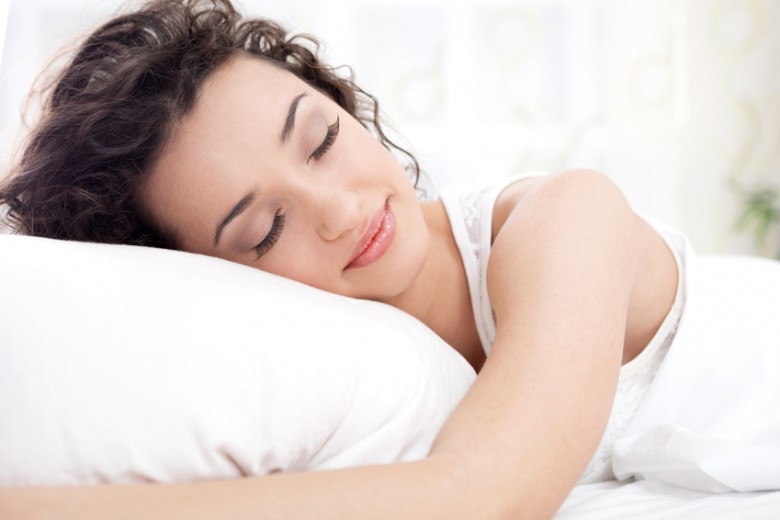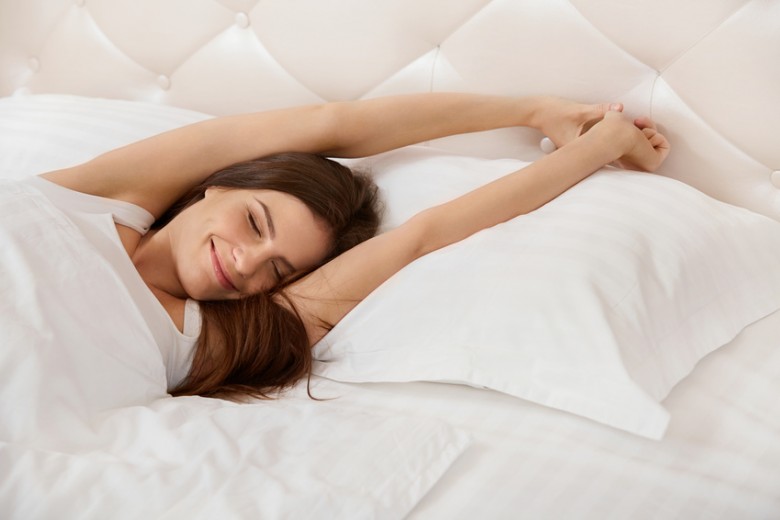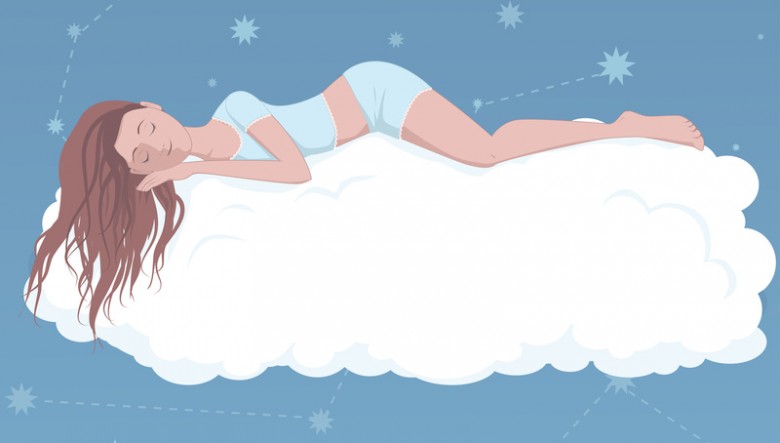The Best Natural Remedies for Sleep Disorders
For those of you who are tired -no pun intended- of staring up at the ceiling, hoping that you will eventually fall asleep, I may have some good news for you. First of all, you are definitely not alone. Almost 33 percent of the population suffers from insomnia. True insomnia is characterized by the inability to either fall or stay asleep, or both, consistently for more than a week. For some reason, women are typically more prone to this condition, likely in part due to the fact that we are always thinking, worrying or otherwise engaged mentally. It could also be hormone related in some cases. But as we age, the quality of sleep declines equally in both men and women.
There are many things that are thought to cause insomnia such as chronic stress, a noisy environment, some types of medications, changes in hormone levels, temperature (too hot or too cold), chronic pain and even anxiety about not being able to fall asleep… now that’s ironic! After time, lack of sleep can also cause depression, which only contributes to your insomnia. It truly is a vicious circle and the less sleep you get, the less likely you are to handle the stress that accompanies insomnia, bringing the whole situation back full circle.
Apnea
Another cause of sleep disturbances is sleep apnea, which is characterized by shallow breathing and or pauses in breathing that can occur 5 to 30 times or more in an hour. During these episodes carbon dioxide builds up, which signals the brain to wake you up, ultimately causing you to be unable to sleep a night without waking numerous times. Almost 18 million people experience sleep apnea in the US alone. Studies also show that sleep apnea can result in high blood pressure and can even lead to inflamed and clogged arteries. You may not even be aware that you have sleep apnea, but when you wake in the morning you may feel exhausted or experience daytime grogginess. Other people can see what is happening, however, and if you are experiencing sleep apnea, you should talk to your doctor as this condition can actually be life threatening. A doctor can test you during a sleep study and determine if you are actually experiencing sleep apnea or if there is some other issue.
The treatment for sleep apnea is typically a continuous positive airway pressure mask (CPAP), which is a mask that is attached to a tube that goes into your throat and blows air to keep your airway open. The success rate is high (90 to 95 percent) but it can be hard to get used to at first. If you have mild symptoms you can also try a dental device that pulls your lower jaw forward in order to create a larger airway. From a natural standpoint, you can also try neti pots or saline drops to treat nasal congestion but you really should see your doctor to make sure you are not at risk for more serious issues. In severe cases, surgery may be necessary and/or helpful.
Medication vs. Natural Remedies
Luckily, I have not been diagnosed with sleep apnea. I have, however, completed three sleep studies, which have determine that for whatever reason, I do not get deep sleep. I actually wake every 20 minutes or so (not that I am aware of this most times.) Prior to these studies, I tried probably close to every natural cure there is for my insomnia. Some were helpful and actually seemed to work for a time, but as I got older and the insomnia got worse, I ended up having to resort to medications. I do however also use some natural remedies that only enhance my sleep and at times, allow me to reduce the medication significantly.
Melatonin
We all produce this hormone naturally after the sun goes down. Darkness triggers our bodies to start pumping out the hormone that regulates our normal sleep/wake cycle. People with insomnia have been shown to have lower melatonin levels. Studies also show that supplemental melatonin can help improve the amount of time it takes to fall asleep. It is also quite good for occasional insomnia brought on by jet lag. I found this remedy to be the most effective of all natural remedies.
Theanine
This is an amino acid derivative found in green tea. It is known to trigger the release of gamma-aminobutyric acid (GABA) in the brain. GABA triggers the major calming neurotransmitters and thus promotes relaxation and reduces anxiety. Studies show however, that the body has difficulty absorbing supplements containing synthesized GABA. Naturopaths and other health professionals therefore typically recommend taking theanine, which the body does easily absorb. It then boosts GABA levels, which help with sleep issues.
5-Htp
This is a chemical made naturally by the body from the amino acid (L-tryptophan), which is a neurotransmitter that is essential for a good night’s sleep. Apparently, 5-Htp is better than L-tryptophan because it can cross the blood-brain barrier and increase serotonin levels in the brain. Serotonin is another chemical that is made after tryptophan is converted into 5-HTP. Studies show that 5-HTP supplements help raise serotonin levels in the brain, thus helping with insomnia. 5-Htp is also used to enhance mood and decrease appetite so it is not recommended for people already on anti-depressants.
Magnesium
You likely know that magnesium is a mineral from high school science class. It is especially known to help with muscle and nerve functions. It is also great for your heart and immune system, and it is often combined with calcium because it is good for keeping your bones strong and healthy. Because lack of magnesium is known to inhibit nerve cell communication, it can lead to cell excitability, which results in nervous stress. Studies show that magnesium is helpful for reducing this anxiety, which helps calms the body and improve sleep quality and nighttime awakenings.
Valerian
This herb to known to help reduce the amount of time it takes to fall asleep. The National Institutes of Health (NIH) have done studies that show that valerian has certain sedative properties, and it may increase the amount of GABA in the brain.
There are many natural supplements that actually combine some or all of the above. Like me, you may just have to go through various products to see which ones work best for you. But, with any natural product, you should talk to your doctor first before taking them as some can interact with certain medications. There really is no one ‘cure all’ for insomnia, but before resorting to medications, taking the natural route may be effective and save you from the side effects that often come with prescription or over the counter medications.


